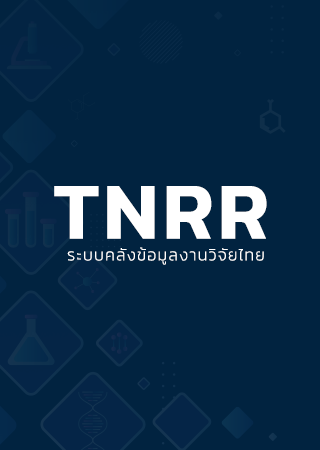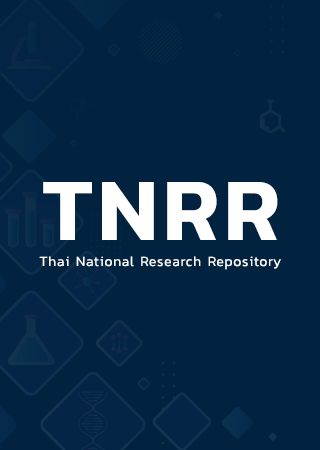Description
ประเด็นด้านสังคมเป็นปัจจัยสำคัญสำหรับการพัฒนาที่ยั่งยืน โครงการที่อยู่อาศัย เป็นจำนวนมากที่ผ่านมาไม่สามารถ เป็นตอบสนองความต้องการของผู้อยู่อาศัยได้ ด้วยขาดการคำนึง ถึงด้านสังคม สมาชิกของชุมชนทุกวันนี้ต่างคนต่างอยู่ ไม่มีส่วนร่วมทางความคิดเห็นหรือความร่วมมือ ในการพัฒนาสังคมที่อยู่ร่วมกัน อันนำมาซึ่งชุมชนที่ไม่ยั่งยืน
เพื่อที่จะพัฒนาโครงการที่อยู่อาศัยที่ตอบสนองต่อความต้องการของคน กระบวนการ มีส่วนร่วมได้รับการพิจารณาว่าเป็นปัจจัยสำคัญที่นำไปสู่ความสำเร็จของการพัฒนาโครงการเพื่อความยั่งยืน โครงการวิจัยนี้มุ่งที่จะพัฒนาโครงการที่อยู่อาศัยที่เน้นการมีส่วนร่วมของผู้อยู่อาศัย เพื่อนำไปสู่ การสร้างสรรค์ชุมชนยั่งยืน พื้นที่ที่ได้รับคัดเลือก สำหรับโครงการนำร่องนี้เป็นของการเคหะแห่งชาติ ตั้งอยู่ในเคหะชุมชนร่มเกล้า
การศึกษาวิจัยได้มีการทบทวนโครงการพัฒนาที่อยู่อาศัยที่เกี่ยวข้องที่ได้รับการพัฒนาโดยภาครัฐและเอกชนแบ่งออกเป็น 3 ขั้นตอนหลักได้แก่ ขั้นตอนก่อนเข้าโครงการ ขั้นตอนการออกแบบ และขั้นตอนหลังเข้าพักอาศัยในโครงการ ขั้นตอนก่อนเข้าโครงการ คำนึงถึงการคัดสรรกลุ่มลูกค้า ที่จะเข้ามาเป็นผู้อาศัยในชุมชนซึ่งจะมีบทบาทสำคัญในการสร้างสังคมในอนาคต ขั้นตอนการออกแบบ คำนึงถึงการมีส่วนร่วมในการกำหนดความต้องการด้านการออกแบบหน่วยพักอาศัยและสภาพแวดล้อม ในโครงการ รวมถึงการประสานงานระหว่างผู้อยู่อาศัย สถาปนิก องค์กรของรัฐที่ให้บริการด้านสาธารณูปโภค สาธารณูปการต่างๆ และผู้รับเหมา ขั้นตอนหลังเข้าพักอาศัยในโครงการ คำนึงถึงการบริหารจัดการในการดูแลชุมชน การรักษาสภาพแวดล้อมเพื่อให้เกิดความยั่งยืน อย่างไรก็ตาม ขอบเขตของการวิจัย จำกัดอยู่ที่ขั้นตอนการวางแผนก่อนเข้าอยู่อาศัยในโครงการและการออกแบบ การก่อสร้างและการบริหารจัดการโครงการ ยังเป็นข้อต้องพิจารณาในการจัดทำโครงการขั้นต่อไป
โครงการมีเป้าหมายเพื่อหาแนวทางในการพัฒนาโครงการที่อยู่อาศัยเพื่อนำไปสู่ การพัฒนาที่ยั่งยืน จากการศึกษาพบว่าผู้เข้าร่วมโครงการจำเป็นต้องเรียนรู้ ทำความเข้าใจเกี่ยวกับโครงการ และให้ความร่วมมือในการจัดทำโครงการ ซึ่งเป็นกระบวนการที่ใช้เวลามากกว่าโครงการที่พักอาศัยโดยทั่วไป ในการที่พัฒนาแนวคิดของโครงการ ประเภทสหกรณ์เคหสถานให้เป็นรูปธรรมสำหรับประเทศไทย มีความจำเป็นอย่างยิ่งที่จะต้องเชิญหน่วยงานรัฐ ภาคีที่เกี่ยวข้อง และผู้สนับสนุนต่างๆ เข้ามามีส่วนร่วมในโครงการ การส่งเสริมและการสร้างแรงบันดาลใจในรูปแบบต่างๆ จะเอาชนะข้อจำกัดต่างๆของโครงการลงได้ โครงการลักษณะนี้มีผลต่อสังคม และเป็นต้นแบบที่ดีของการพัฒนาที่อยู่อาศัย ที่ยั่งยืนสำหรับประเทศไทย
<br><br>Social aspect is a key component for sustainable development. Many housing projects in the past have failed to serve their residents due to the lack of social concern. Members of the housing communities these days tend to live separately. They do not share views, interest and collaboratively develop the relationship in their society, thus leading to unsustainable community.
In order to develop a housing project that serves people’s needs, participatory process is considered the major factor contributing to the success of housing development. The research aims to develop a housing project which focuses mainly on the participation of potential residents in order to create a sustainable housing community. The selected site for this pilot project is owned by the National Housing Authority (NHA). It is situated in Rom Glao area.
The study reviews relevant projects done by the government and private sector. The project is planned for 3 phases: pre-occupancy or planning, design and construction, and post occupancy. The pre-occupancy or planning process involves selection of community members which is essential for shaping the community in the future. The design and construction process involves participatory design for single dwelling units and community. It is collaboration among potential residents, architect as well as support organizations including power and water supply providers, and contractors. The post occupancy process involves self-management and maintenance of the environment for sustainable community. However, the scope of research is limited to the planning and design process only. Building construction and community management are to be considered after the first phase.
The research objective is to develop guidelines on housing development project to achieve sustainable development. It is found that all participants require knowledge, understanding and collaboration which takes more time than other types of housing project. In order to implement the concept of cohousing in Thailand through the participatory process integrated design, it is crucial to invite government, stakeholders, and support organizations to engage in the project. Promotion schemes and incentives should be proposed to overcome all the limitations. The project has an impact of society and could set a good example for sustainable housing development in Thailand.
Date of Publication :
02/2023
Publisher :
การเคหะแห่งชาติ
Category :
รายงานการวิจัย
Total page :
77012 pages
People Who Read This Also Read


